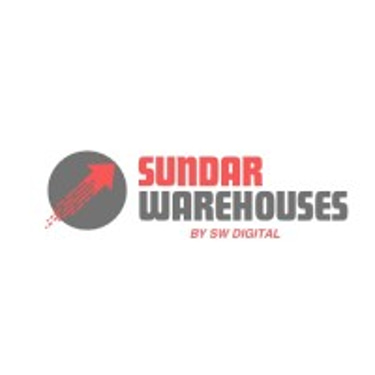Why Renting a Warehouse is Better Than Owning One: A Strategic Advantage for Businesses
In the world of logistics and supply chain management, having access to storage space is critical for businesses. Warehouse in Lahore. Whether you’re a retailer looking to stock products or a manufacturer in need of raw material storage, you will likely face a common question: Should you rent a warehouse or invest in owning one?
8/25/20243 min read
Why Renting a Warehouse is Better Than Owning One: A Strategic Advantage for Businesses
Having access to storage space is essential for organizations operating in the logistics and supply chain management industries. The topic of whether to buy or rent a warehouse will probably come up for you, whether you're a company in need of raw material storage or a store trying to stock products. Even while it might seem simple, renting a warehouse has a lot of benefits over buying one, particularly for companies that are expanding or changing quickly.
1. Lower Initial Costs
The reduced initial expenditure is the main benefit of renting a warehouse. A large financial investment is needed to build or buy a warehouse, taking money away from other important business expenses like marketing, product development, or hiring people. By renting, companies can get the storage space they require without devoting all of their resources to real estate, freeing up funds for other crucial tasks.
2. Flexibility in Location and Size
Businesses' needs for storage might change as they expand and evolve. Flexibility in terms of size and location is provided by renting. If your company is growing or branching out into other markets, renting warehouse space in several areas is simple. In a same vein, you can scale up or down without having to worry about being tied to a fixed location if your inventory or operating needs change. Having a warehouse locks you into a set area and size that may not always fit the needs of your company down the road.
3. Reduced Maintenance and Responsibility
Having a warehouse of your own demands full responsibility for maintenance, repairs, and improvements. This may be expensive and time-consuming, particularly if the property is ancient or gets a lot of use. The majority of building maintenance and upkeep is usually taken care of by the property owner when you rent, giving you more time and money to concentrate on running your business instead of managing the building.
4. Access to Modern Facilities
Technology used in warehouses is always changing. Modern warehouses provide cutting edge ways to improve operations, such as automated technology, enhanced security, and energy-saving features. By renting, you can utilize cutting-edge facilities without having to make the substantial financial investment needed to construct or renovate your own. This implies that you can profit from high-tech features without having to shoulder the cost of ownership.
5. Financial Predictability
Your expenses are more or less predictable when you rent a warehouse. For the term of the lease, rent is normally set, and extra expenses like utilities or maintenance are frequently included in the agreement. Budgeting is now simpler and more direct as a result. However, having a warehouse exposes you to varying costs like unplanned maintenance, real estate taxes, and insurance premiums, all of which can negatively impact your cash flow.
6. Faster Access and Market Entry
Choosing a location, building, obtaining permissions, and obtaining approvals are all part of the lengthy process of starting from scratch when setting up a warehouse. A quicker option is to rent, which enables you to move into an existing facility and begin operations right away. Businesses who are expanding into new areas or coping with seasonal demand spikes would particularly benefit from this.
7. Risk Mitigation
Demand changes and market swings can affect the logistics and storage sector. The risk of owning a warehouse is that, should your business model change, the property may lose value or become outdated. Because renting releases you from a long-term commitment, it reduces these dangers. Without having to worry about having to sell your home or suffering a financial setback as a result of the state of the market, you can move or alter your storage plan.
8. Tax Benefits
Tax advantages are another benefit of renting a warehouse. Lease payments frequently qualify as business costs that you can deduct, which lowers your taxable income. Tax deductions for depreciation may be available to property owners, but they might not be as effective in covering ownership expenses as a deduction for rent. Furthermore, renting a warehouse eliminates this risk completely, while owning one may subject you to capital gains taxes when you sell the building.
Conclusion: Renting for Agility and Growth
For most firms, renting a warehouse offers several strategic advantages, particularly for those trying to stay flexible in a fast-paced industry. It gives you financial relief, flexibility, and access to first-rate amenities without all the obligations of ownership. While owning a warehouse may make sense in some circumstances, such as when a company has consistent, long-term storage needs, renting a warehouse is sometimes a better option for firms that want to keep prices down, retain flexibility, and concentrate on their core competencies.
The capacity to quickly adjust is crucial in the ever-changing business landscape, and renting a warehouse may hold the key to realizing the full potential of your organization's growth.
Want to rent a warehouse space? Contact Us
